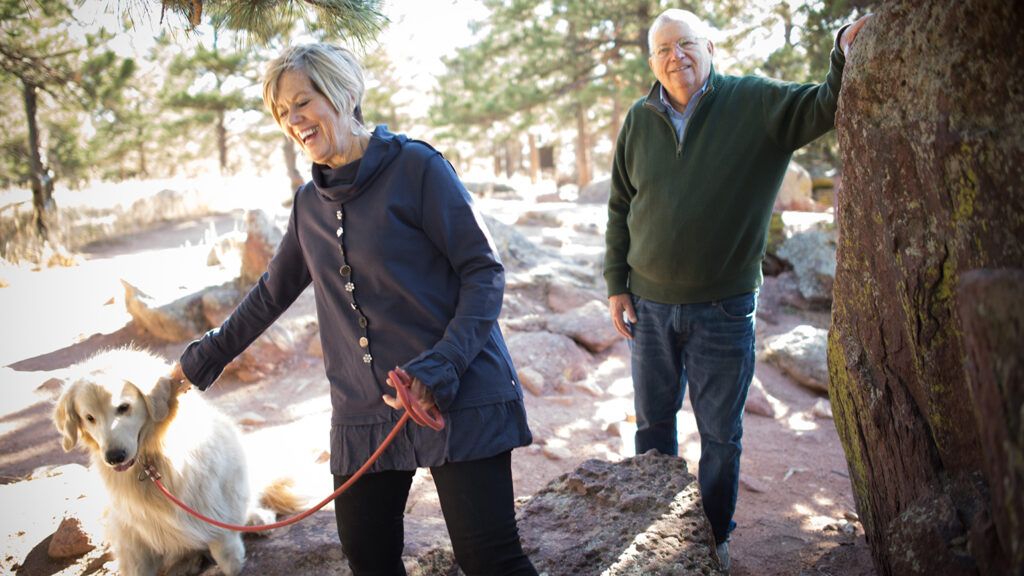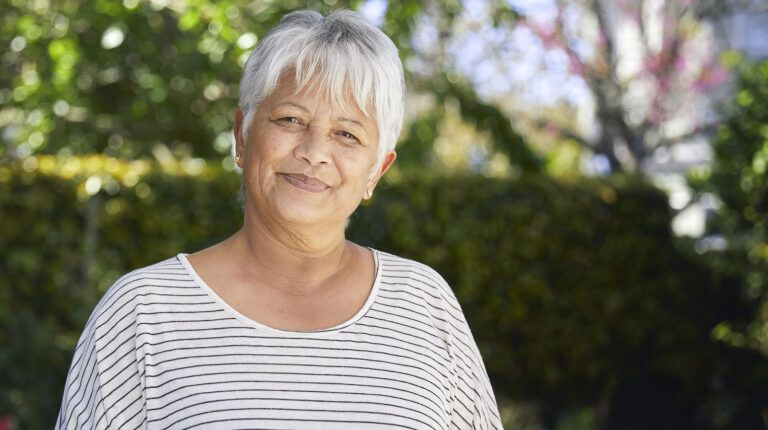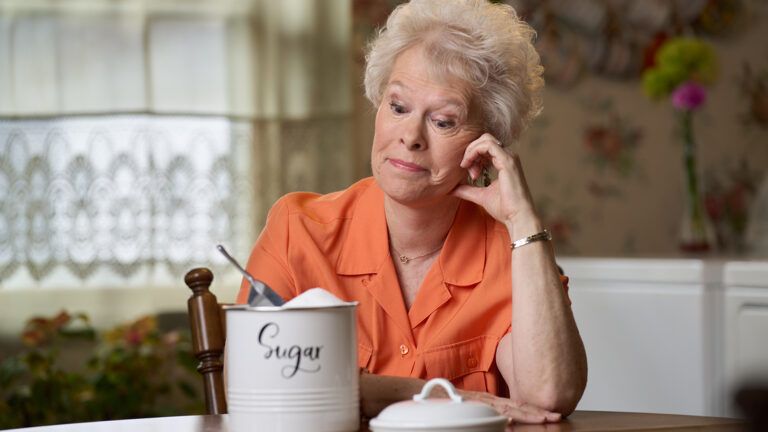Eleven years ago, my doctor gave me a death sentence. Incredibly, at almost the same time, my husband got similar news.
I’d recently turned 60. Lynn was 62. We’d thought we were just hitting our prime. The best decade of our lives. Wasn’t 60 was supposed to be the new 40, or something like that? Then both of us were diagnosed with advanced cancer—Lynn with a malignant brain tumor; me, six weeks later, with Stage 4 ovarian cancer.
I asked the oncologist to give it to me straight: How long did I have? Two years. That was her answer. I tried to process the shocking prediction: I could be dead in two years.
Start each day with encouragement for your soul. Order Mornings with Jesus 2019
Well, I wasn’t. I didn’t die. But it was when Lynn and I thought we might be dying that we learned how to live with intent. To make each day matter. To embrace the moment.
What does it mean to live intentionally? Here is some of what we learned:
Be Present
I’m not going to sugarcoat it. Chemo was draining, physically and spiritually. My first instinct was to retreat to the safety and privacy of home, where I could be at my weakest and most vulnerable. My hair was falling out. I had no energy. I couldn’t go to work or take a hike in the mountains around our Colorado home. I couldn’t even bring myself to go to church.
What would I say when everyone asked how Lynn and I were doing? They wouldn’t want to hear that we were feeling discouraged, afraid and overwhelmed any more than I wanted to hear well-meaning suggestions about special diets or miracle supplements that would cure us.
One day our pastor stopped by and I admitted that I’d let my world grow small. “I feel safer at home, where I don’t have to answer any questions.”
He paused and then said, “Remember, just by showing up you encourage others. You don’t have to say anything. They see you and they see your strength. I call it the gift of presence.”
I didn’t understand what he meant until Lynn and I finally did make it back to church. The first time, we left before the service was over so we could avoid conversations. That afternoon I got an e-mail: “You blessed me because you came to church.” By midweek I’d received half a dozen cards saying the same thing. That response gave us the motivation to keep going back. And sometimes the courage to stay and talk to people.
READ MORE: FAITH OVER FEAR IN THE BATTLE AGAINST CANCER
Every three weeks I had to spend a day at the infusion center receiving chemo. Instead of resenting chemo, with all its negative side effects, I decided to be fully present and to “lean into” the experience. I imagined chemo as my friend, not my enemy. It was on my team, and together we were fighting cancer.
Lynn and I were also present for each other. Driving together to our medical appointments (there were dozens of them) and our treatments. Lying in bed, recuperating from chemo (Lynn underwent radiation as well), sometimes too weak to move. We’d jokingly argue about who was the sickest and who should get up and let our old Labrador out. Even who would die first.
Grim, I know, but why not make a joke about what we each knew the other was thinking? Humor can soften reality, and we needed that. Sometimes Lynn would leave me tender notes: “Thanks for all the things you do for me that are seen and unseen,” he wrote. “You are such a good grandmother. Your grandgirls will always remember Oma.”
But it was the many times when we didn’t talk or didn’t try to make light of our situation that meant the most to me. The silence was a communion. We each understood what the other was going through and there was nothing that needed to be said. It was enough to know that we were there for each other, as we’d been for more than 40 years of marriage.
Be Open to the Possibilities
I was diagnosed in December 2005. At the beginning of the New Year I sat at my desk looking at my 2006 calendar with all its blank squares, knowing that the only things I’d be filling in were chemo appointments and doctor’s visits. Was that all I had to look forward to?
My life used to be full of activity, of meaning. There was my job writing and teaching for MOPS, an international faith-based network of moms’ groups. I went for bike rides and long walks with friends, took aerobics classes. Lynn was a lawyer, a partner at his firm. We were active in our church.
READ MORE: 7 ENCOURAGING SCRIPTURES FOR LIVING WITH CANCER
Now it was as if all that had been erased, as if I were on the edge of a precipice staring into a deep, dark void. Two years. That’s what the doctors said.
When someone from church visited one day, I told him how depressing it was to see all those empty squares on the calendar.
“Don’t think of the days ahead as empty. Think of them as open,” he advised me. “Be open to the possibilities. Possibilities that your circumstances might hold more than what you see right now.”
What possibilities, I wondered. Yet a few days later, Lynn woke up early and, while it took him longer than usual to get ready, he went to work. And the day after that he did it again.
I wondered how he had the energy. Then it hit me: This was his way of living intentionally. His work made him feel fulfilled and renewed and purposeful. I loved my job, but I could no longer handle the responsibilities and the 45-minute commute to the Denver headquarters of MOPS. Instead I offered to babysit our grandgirls on the days I felt strong enough.
I dug out a box of dressup clothes. “Look, Oma!” one of my granddaughters said, twirling around. “I’m Cindewella!” We danced. We sang. I hosted tea parties for various “pwincesses,” and we sat at the kitchen counter eating bowls of ice cream together because ice cream always made me feel better. On those nights, I fell into bed exhausted but happy.
From then on, I pushed myself to do something meaningful, something life-affirming, every day. It didn’t have to be big. I played with the grands every chance I got. Other days it was just walking the dog, taking my time to delight in everything the way he did—sniffing the fresh air, even walking through mud puddles. I stayed in the moment, day by day.
READ MORE: STAYING HOPEFUL THROUGH CANCER
Be With Others
Living intentionally means making choices to do what matters most. For us, that meant spending time with the people who matter most. Even at the expense of fatigue sometimes. Showing up at a grandchild’s preschool party. Going for a walk with a friend, just to listen. Attending a funeral not because I knew the deceased but because I knew her daughter. Being in relationships means being inconvenienced sometimes.
We looked for ways to celebrate with others. We attended our granddaughter’s baptism in Denver. I really didn’t feel up to it that day, but I forced myself to go. Sunlight streamed into the church as the minister sprinkled the water, casting such a glow over the baby that I caught my breath with the joy and wonder of celebrating new life!
Lynn and I hosted family dinners more often. No special occasion necessary. No heavy discussions. Just laidback meals and conversation, a time to be together around a table.
Our children gave us a spontaneous fortieth-anniversary party, pulling it off in just a few days. More than 40 people showed up to create a great memory. We ended our first year of treatment around Christmas. Our kids celebrated the milestone with a family “chem-over” party and gave us a golden retriever puppy I named Kemo because of my decision to make chemo my friend.
Be Optimistic
We chose to look at our future with hope. Lynn and I weren’t sure we had a lot of time left but, oddly, we had lots of time on our hands. People don’t ask you to serve on committees or attend meetings when they think you’re dying. So we made a bucket list. Things we wanted to do. Things we wanted to live for.
Lynn wanted to go to Alaska. I wanted to visit New York City at Christmastime. We’d lost a golden retriever not long before we got sick. I wanted one more golden to love. That was Kemo. And there was one more thing we both wanted: to see our daughter Kendall, who’d had three miscarriages, become a mother.
READ MORE: SEUN ADEBIYI LIVING ‘BREATH TO BREATH’
My focus was on living one day at a time. But in accepting that I couldn’t control when I would die, that only God numbers my days, I found a freedom I wouldn’t have known otherwise. A chance to imagine a future for myself. Others helped me do that.
The fall after I was diagnosed, a few friends came over to the house and planted some bulbs in the yard as a sign of faith that I would see them bloom in the spring. They knew that I was afraid to hope at the time. Spring would come three to four months after I had finished chemo, which is often when a cancer recurs.
In the spring of 2007, my scans were clear, and the tulips and daffodils my friends had planted burst into view. How to be optimistic when you might not have long to live? Be open to God’s promise to grow good things in hard places. Be open to discovering new hope. To having a future.
Believe
One summer morning, our daughter Kendall came over and plunked a sign down on our kitchen counter. In big letters it read: BELIEVE.
“Mom, you and Dad just have to believe,” she said.
I looked at the sign, at the word I’d read and written and spoken so many times. And for the first time I saw lie tucked into the middle of it. How often had I focused on a lie rather than believing the truth of God’s promises?
We hung the sign above the kitchen sink. I saw it every day, and every day it reminded me that faith overcomes the fearful lies that distract me. Slowly, an odd peace came over me, a trust that God would provide and prepare Lynn and me for our future, regardless of the outcome.
READ MORE: CANCER SURVIVOR SHARES WORDS THAT INSPIRED HER
Eleven years after that initial diagnosis, we’ve crossed off all the items on our bucket list. Alaska. Christmastime in New York. Our dog Kemo is now a distinguished older golden. Our daughter Kendall is the mother of three, bringing us to a total of 10 grandchildren, a constant source of joy and wonder.
Lynn had a recurrence of his brain tumor and went back on treatment. He had to retire from his legal practice, but is done with treatment once again. I have had no relapses.
We don’t need a bucket list anymore. We’re now on what I call our Divine Detour, using what we learned in one season of our lives to carry out God’s purposes for us in the next. You could say it took a death sentence to teach us how to live with intent.
We’ve held on to that habit. We exercise regularly to keep our strength up for doing what matters most. We love to spend time in the mountains near our home, especially with our children and grandchildren. Lynn is a hospice volunteer and serves as a Stephen minister at church. I mentor mothers through MOPS, and I walk alongside people who have been diagnosed with cancer.
I’ve come to see this as my new purpose, the reason I’m still here—to encourage others living with cancer. Only God knows when our journeys will end. Everything between now and then is a world of possibilities that we are put here to help each other discover.
Did you enjoy this story? Subscribe to Guideposts magazine.






